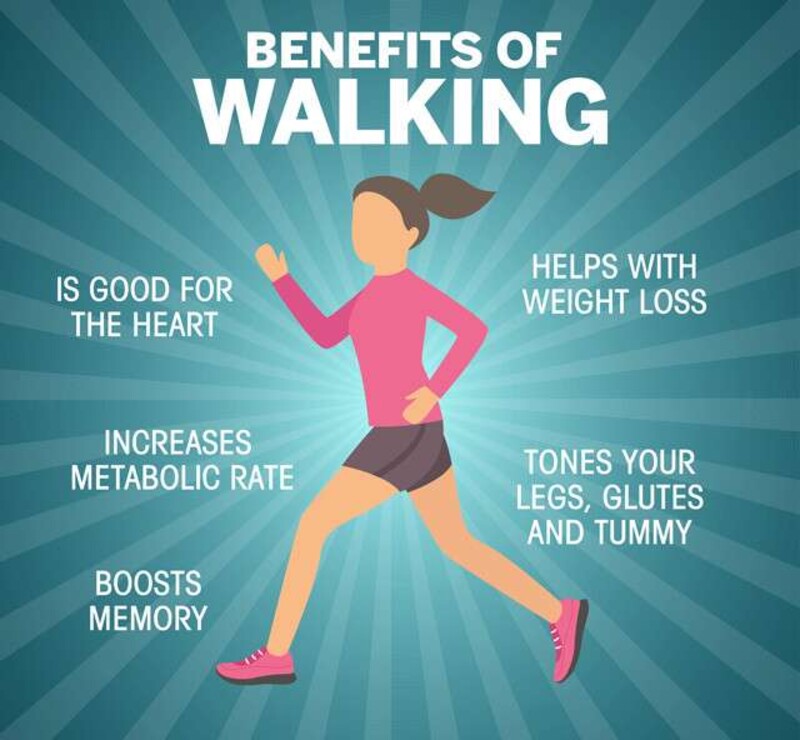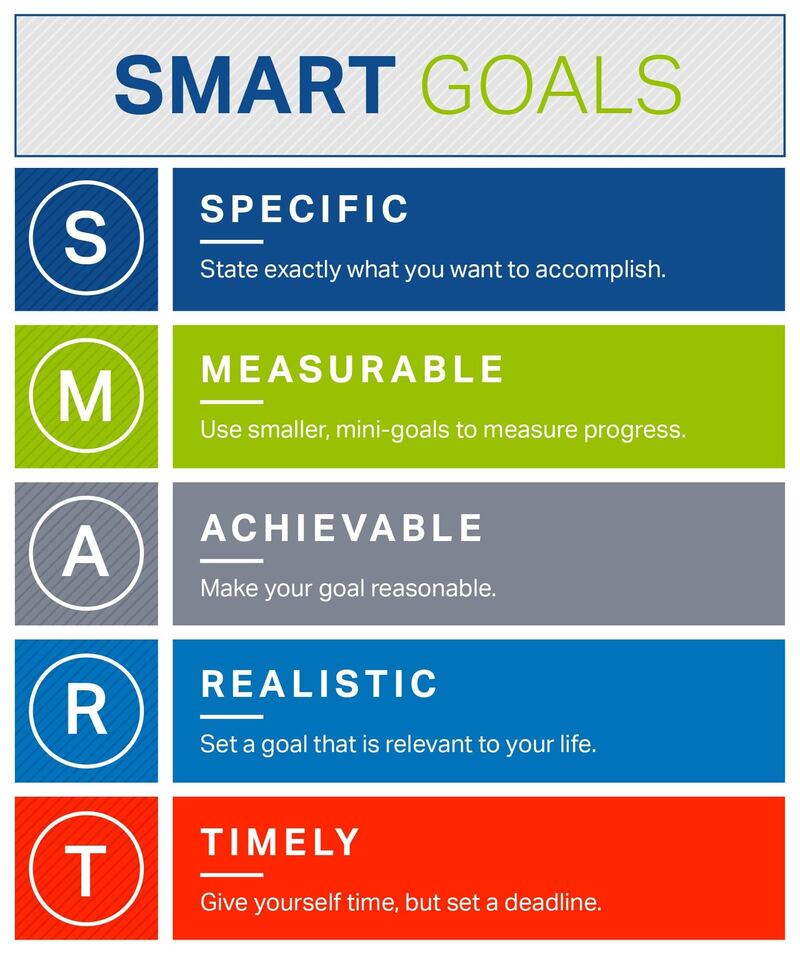Walking for Health
Nov 30, 2023 By Nancy Miller
Engaging in the simple yet powerful exercise of walking can yield numerous health benefits: it significantly contributes to overall well-being. As you incorporate regular walks into your routine, a wide range of advantages for both physical and mental health become apparent. These are key perks when utilizing walking as a fitness activity.

Benefits of Walking as Exercise
Physical Benefits
A versatile, low-impact exercise with extensive physical benefits; this is walking. Regular walks significantly reduce the risk of heart disease, a crucial impact on cardiovascular health. Circulation receives a boost from walking's rhythmic nature; this promotes improved blood flow and assists in maintaining healthy blood pressure.
Weight Management:
- Engaging in brisk walking naturally and effectively manages weight. This seemingly simple activity burns calories along the way and contributes to either weight loss or maintenance. It offers a sustainable approach that dovetails with dietary efforts and fosters an optimal body composition.
Muscle Strength and Tone:
- Walking has benefits beyond cardiovascular benefits. It activates diverse muscle groups, augmenting overall muscle strength and tone. Although not delivering the same intensity as weightlifting, consistent contraction with each extension of muscles during a walk enhances muscular health significantly.
Endurance Improvement:
- Walking is an exceptional method for elevating general endurance. This form of aerobic exercise conditions the body to utilize oxygen efficiently, thereby enhancing stamina progressively. The resultant boost in endurance not only enhances physical activities but also engenders a more energetic and resilient daily life.
Joint Flexibility:
- Individuals with conditions such as arthritis particularly benefit from the gentle yet consistent movement of walking. It aids in maintaining joint flexibility. Walking offers a low-impact option, keeping joints supple without intensifying discomfort.
Bone Density Enhancement:
- Unlike high-impact exercises, which may pose risks to bones, walking specifically supports bone density. Regular walking stimulates the bones reduces the risk of osteoporosis and promotes long-term skeletal health.
Posture Improvement:
- Walking with proper form encourages good posture. It actively contributes to spinal health. Engaging the core muscles promotes a balanced and aligned spine. This proves particularly advantageous for individuals who spend extended periods sitting. Walking serves as an effective countermeasure against sedentary behavior's negative effects on posture.
Walking as a holistic fitness activity underscores its importance through comprehensive physical benefits. Regularly incorporating walks into your routine diversely and significantly improves cardiovascular health, muscular strength, and bone density. Thus demonstrating their profound impact on overall wellness.
Mental Health Benefits
Walking, in addition to offering physical advantages, critically promotes mental well-being: it supports stress relief and enhances cognitive function and sleep quality, ultimately improving overall emotional well-being.
- Stress Reduction and Anxiety Management
Researchers have established a correlation between regular walking and the reduction of stress levels, as well as successful anxiety management. The body's relaxation response induced by the rhythmic, repetitive nature of walking, lowers cortisol. This is the hormone associated with stress.
By partaking in this straightforward yet potent exercise, one can actively engage in a mindful escape from daily life's pressures. It presents an opportunity for therapy: clearing your mind and alleviating stress simultaneously.
- Enhanced Cognitive Function
Research demonstrates that walking enhances cognitive function and creativity. The brain's cognitive performance, such as memory, attention, and problem-solving skills, improves with increased blood flow during exercise.
This not only benefits immediate mental tasks but also contributes to long-term brain health and resilience against age-related cognitive decline. This presents an opportunity for therapy, clearing your mind, and alleviating stress simultaneously.
- Improved Sleep Quality
Better sleep quality links to regular physical activity, particularly walking. Walking's calming effects enhance restful sleep and assist in regulating sleep patterns. A consistent routine of walking establishes a positive impact on the circadian rhythm, promoting an optimal sleep-wake cycle. Rejuvenating the mind and enhancing overall mood, quality sleep actively promotes mental health.
- Emotional Well-being and Mood Enhancement
Walking notably triggers the release of endorphins, commonly known as "feel-good" hormones. These natural mood enhancers induce a sense of euphoria and well-being. Regular walkers frequently attest to an elevated overall mood.
They also experience heightened self-esteem, factors that contribute significantly towards a deeper sense of happiness. Physical activity, exposure to nature, and the social aspects of walking together contribute towards a holistic approach to emotional well-being.
Not only does incorporating regular walks into your routine benefit your physical health, but it also provides a comprehensive approach to mental well-being. Stress reduction, improved cognitive function, better sleep quality, in short, all-encompassing aspects of enhanced emotional resilience. Walking thus proves itself as a holistic and accessible method for bolstering mental health.

Walking as a Fitness Activity
Incorporating Walking into Your Routine
Incorporating walking into your daily routine is both accessible and adaptable. From brisk morning walks to leisurely park strolls, even using walking as a mode of transportation. You can find enjoyable and beneficial ways to include this activity in your schedule.
Setting Realistic Goals
Set realistic goals to maximize the exercise benefits of walking. Gradually ramp up both the duration and intensity of your walks. This approach enhances physical fitness, while simultaneously fostering a sustainable routine. Therefore, it proves doubly advantageous.

Social Aspects of Walking
Consider joining a walking group or extending invitations to friends and family. This is an excellent opportunity for social interaction through walking. The introduction of this social aspect not only enhances the activity's enjoyment but also elevates motivation and accountability. This will also contribute towards a more disciplined approach.
Conclusion
Conclusively, walking as exercise offers extensive health benefits that affect diverse aspects of our well-being. It enhances cardiovascular health, fosters mental clarity, and is a holistic approach to fitness. Integrate regular walks into your routine. This will not only boost both physical and mental health but also contribute towards a happier, healthier lifestyle. Initiate action today, and embark on the journey that will lead to a life brimming with vitality and satisfaction.

Timing Your Caffeine: Identifying the Ideal Moments for Coffee Consumption

Struggling with Skin Picking? Here’s How to Break the Cycle!
How Partnerships Are Strengthening Health Promotion Initiatives in Schools

Walking for Health

Benefits of Brazil Nuts

Unveiling Peanut Nutrition Facts and Health Benefits for a Better Lifestyle

Foods to Avoid with Gout


